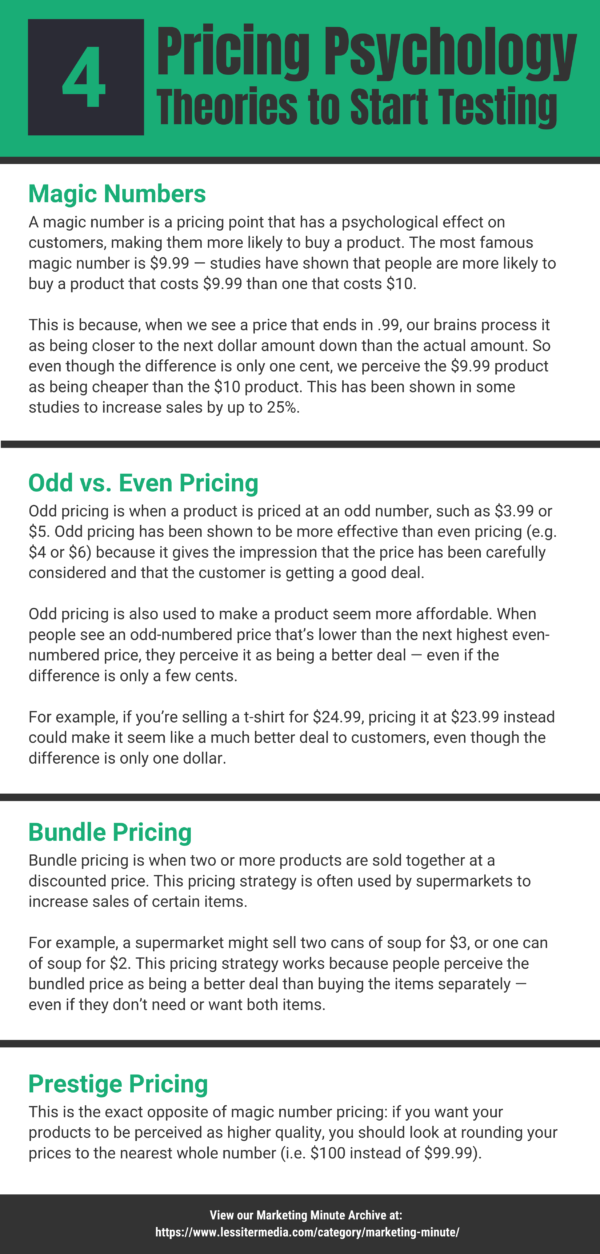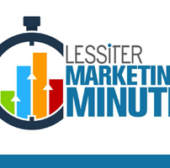
By Kayla Waukau
Marketing Coordinator, Lessiter Media
kwaukau@lessitermedia.com
If you're anything like me, you're always on the lookout for a good deal. But with the rising costs of seemingly everything these days, it's hard to tell what's actually a good bargain. It's just another battle we as marketers face in trying to connect with our customers.
In past Marketing Minutes we have looked at how color and touch/feel can influence purchases, but today we are going to dive into the numbers and how pricing can impact a purchasing decision.
The difference between $9.99 and $10 is exactly one cent. On the surface, that is next to nothing. But thanks to pricing psychology, if you take a deeper look, it could make all the difference between someone thinking they are getting a good deal or someone viewing your product as a premium item worth paying more for.
According to Craftybase, pricing psychology "is the study of how people react to different prices for goods and services, and what factors influence these reactions."
We recently put this to the test ourselves and looked at how we were listing price savings in the subject line of an email: $180 vs. $180.00. The idea was by including the decimal places it made the savings look bigger and therefore more enticing to our audience. After several rounds of testing, we did indeed see a higher engagement on the versions that listed $180.00 in the subject line.
Pricing psychology can be a complex topic. Changing just a single variable in the example we tested could have drastically changed how our audience responded. But by testing and getting a better understanding of what your customer is looking for, you can ensure that your pricing strategy is in line with their needs and expectations.
Interested in testing some pricing psychology theories of your own? I've put together a list of four different pricing strategies that are a good starting point for trying to identify what psychological triggers will appeal to your target customer.
Source: Craftybase



